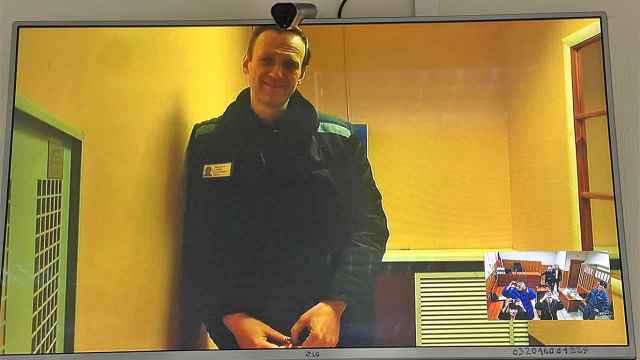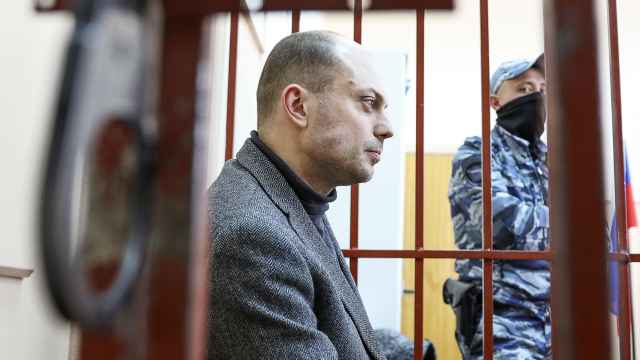At an exhibition of products made by inmates of the Federal Penitentiary Service in Yekaterinburg, Ivan Sharkov, head of the department for labor adaptation of inmates of the Russian State Penitentiary Service's Sverdlovsk Region, said that the Russian system of correctional labor camps could replace IKEA. The inmates do better work, he said, and are cheaper. Alexander Fyodorov, the head of the region's Central Penitentiary Service, claimed that penal labor camps could replace other foreign companies that have left the market.
Resource deficit and free labor
The Gulag archipelago is returning as one of the country's main production units. The way things are going, soon the FSB will get tired of accusing professional physicists of treason and espionage and will send them to "sharashki" to invent advanced technologies. In these camps they’ll bring about that "technological sovereignty" promised by the top leadership. This is what “import substitution” — which no one has actually seen — might look like in Russia.
Russia is slamming shut like a clam shell. Self-isolation and autarky — economic self-sufficiency — have been elevated to the level of managerial valor and human virtue. But Russia doesn’t have enough resources for self-sufficiency. So we are forced to return to the methods of the distant autarkic past and rely on the capabilities an almost free workforce, i.e. the Gulag.
In this context it’s easy to believe the rumors that prisoners can “redeem their guilt” before their homeland by serving in the army in Ukraine. The authorities deny it, which just makes it all the more likely to be true.
There might be a labor shortage, but there are no prisoner shortages. And so we see a return to the roots of Soviet-Russian imperial statehood.
The Gulag once had great economic value. But that came about by chance, which makes one think about the role of the individual in history.
The Frenkel of Frenkelization
To turn the Solovki prison into a labor camp you needed a prisoner like Naftali Frenkel, a person so versatile that it is hard to define him professionally and personally. He was like a character out of a short story by Isaac Babel, or maybe a combination of Babel’s Odesa gangster Benya Krik and a modern oligarch during the first stage of capital accumulation.
Frenkel was a famous smuggler who ruled over half of Odesa, someone who was skilled at adapting to external circumstances, including the Soviet authorities and the prison guards that he was eventually moved to. But once he didn’t escape capture, was nearly executed, and ended up in Solovki. There he continued his career as a problem-solver and organizer of various lucrative deals, becoming in 1925 the head of the Exploitation and Commercial Department of the Administration of the Solovetsky Special Camp (USLON), a department he had created. The weekly Novyye Solovki, the newspaper of the USLON and the Solovetsky cell of the Bolshevik Party even published an article by Frenkel. His passion would be the envy of the father of monetarism, Milton Friedman, not to mention the father of Kosygin's reform, Yevsei Liberman.
For example, Frenkel noted that, "The way in which each unit of production works requires a precise calculation of all the expenses it requires and a careful determination of the value of the products it produces.” There is no need, Frenkel argued, to produce what is not in demand and unprofitable: "...all the productive work must in all its parts be coordinated with one, main criterion of economic work — the principle of self-financing." He was just a forerunner of perestroika-era socialism for-profit, but only on the rails of the Gulag rails — literally and figuratively.
The main road of development
Frenkel's efforts did not go unnoticed by the secret police, and later by the country's leadership. He began his brilliant career by first making his department self-sufficient. Then he turned the entire camp into one big shop that was profitable by virtue of the cheap labor of the prisoners. Frenkel just saw them as a productive biomass. Thanks to Frenkel, the country’s prison camps were turned into correctional-labor camps, with the emphasis on the second word. The Belomorkanal was his brainchild. The Baikal-Amur Mainline started under him. Frenkel became a lieutenant general when he was appointed head of Gulag railway construction and laid the rails efficiently and quickly. Three orders of Lenin crowned the activity of this unique character, who stepped from Babel's "Odesa Tales" straight into the very heart — or rather the brain and muscle — of Stalin's hell.
Skeptics called Kosygin's reforms "Libermanization" after Professor Yevsei Liberman from Kharkiv, who advocated greater independence for enterprises. The process of forming the current, autarkic economic order, designed to use prison labor to replace the work of advanced foreign businesses, could be called "Frenkelization.” Along with “parallel imports” — i.e., legalized counterfeiting, an idea that Frenkel would have loved — perhaps Frenkelization will be the main path for the development of industrial production in the post- Feb.24, 2022 Russian Federation.
Labor — especially forced labor — sets you free!
A Message from The Moscow Times:
Dear readers,
We are facing unprecedented challenges. Russia's Prosecutor General's Office has designated The Moscow Times as an "undesirable" organization, criminalizing our work and putting our staff at risk of prosecution. This follows our earlier unjust labeling as a "foreign agent."
These actions are direct attempts to silence independent journalism in Russia. The authorities claim our work "discredits the decisions of the Russian leadership." We see things differently: we strive to provide accurate, unbiased reporting on Russia.
We, the journalists of The Moscow Times, refuse to be silenced. But to continue our work, we need your help.
Your support, no matter how small, makes a world of difference. If you can, please support us monthly starting from just $2. It's quick to set up, and every contribution makes a significant impact.
By supporting The Moscow Times, you're defending open, independent journalism in the face of repression. Thank you for standing with us.
Remind me later.








